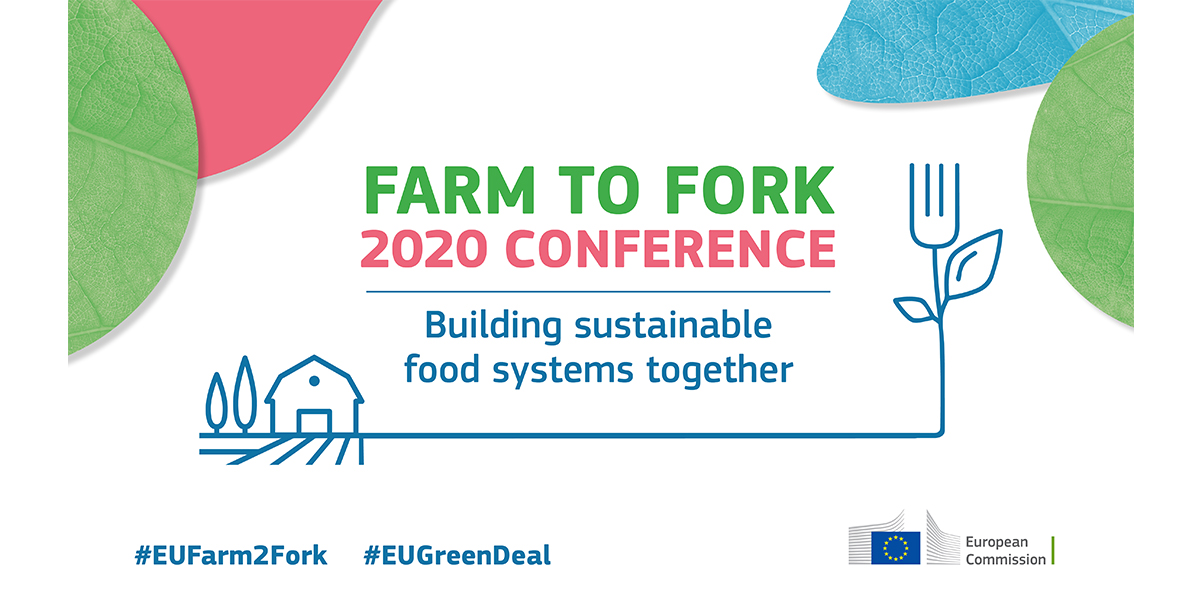Today and tomorrow (15-16 October 2020), the European Commission is holding the important conference “Farm to Fork - Building sustainable food systems together”. This event is the first in a series of annual gatherings of European stakeholders willing to engage and help shape the EU's path towards sustainable food systems and contribute to the recently approved ‘Farm to Fork Strategy’.
The EU’s Farm to Fork Strategy is at the heart of the European Green Deal and aims to make food systems fair, healthy and environmentally friendly, ensuring food security. Some of its key objectives are protecting and enhancing biodiversity, and reducing the use of pesticides and antimicrobials.
The ambitions to restructure the European food system calls for a collective effort. In this context, standards have an important role to play. Indeed, CEN, the European Committee for Standardization, is already undertaking some activities that share the objectives of the Farm to Fork Strategy.
For example, one of the most relevant Technical Committees (TC) involved in the field is CEN/TC 275 ‘Food analysis - Horizontal methods’. The main focus of the TC is to develop standards, which provide detection methods to estimate contaminants, pesticides, allergens and toxins, thus ensuring food security. In particular, TC 275’s Working Group 3 ‘Pesticides’ deals with testing methods on pesticides. These methods help evaluate and monitor pesticide levels in food stuffs and often contribute to keeping these levels below the limits usually set by legislative and environmental agencies. Ultimately, this supports the goal of reducing pesticide use, as, if someone wants to reduce their application, a way to check this in food products is by using these validated testing methods.
Using pesticides in a responsible way can in turn support biodiversity: using less pesticides, by testing for their presence, harms biodiversity less, and even allows for it to restore itself. Another consequence of reducing the use of pesticides is the development of alternative methods in agriculture that are less disruptive to biodiversity. A good example of the handling of a problematic pesticide is the future work project on polar pesticides, e.g. glyphosate. This is a chemical that will soon be prohibited in the EU, meaning test methods to detect it will be required in the near future.
Another TC contributing to the objectives of the Farm to Fork strategy is CEN/TC 302 ‘Milk and milk products - Methods of sampling and analysis’. Mainly, TC 302 develops standards that contribute to ensuring that dairy products are nutritious. In particular, some of their standards are related to the characterization and quality determination of dairy proteins, a highly topical issue, such as the determination of amino acids in infant formula and other dairy products and the determination of in vitro protein digestibility.
Furthermore, it is working on several projects on the determination of contaminants in dairy that play an important role in ensuring food security. Examples of this area of work include a series of guidelines for the validation of qualitative screening methods for the detection of residues of veterinary drugs in milk and milk products (prCEN/ISO TS 23758) and prEN ISO 14501 ‘Milk and milk powder - Determination of aflatoxin M1 content - Clean-up by IA chromatography and determination by HPLC’.
The two above-mentioned TCs are only two cases out of many diverse activities, which have been undertaken by the European Standardization System (ESS). Other examples and more information can be found on the sectoral page about Food and Agriculture.

Christina THORNGREEN
cthorngreen@cencenelec.eu



